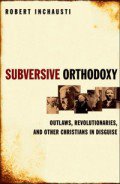say something
A couple people have asked why I haven't written much lately. So I guess I should say something without waiting any longer.
Part of the silence was because we were having such a good time in Evanston with our old Reba Place friends and Ric and Helen, Heather's uncle and aunt. But perhaps a bigger part was because I felt my immediate future was so undecided. The feeling of uncertainty and confusion made it hard to gather good thoughts.
When I got back to Champaign, I called the retreat place folks (the Mahoneys, who I had been talking to). They said there were several aspects of my background that made me seem like a good fit there, but now wasn't a good time to come. That really disappointed me. But they offered some good suggestions. Since their ministry is mostly to people that have gone through a 12-step program (like Alcoholics Anonymous), they recommended getting familiar with that program and the spirituality it teaches. They build on that in their retreats. And they also suggested contacting a Jesuit in Chicago who is doing similar retreats with the homeless and recovering addicts. I did that, even hoping to move to Chicago and work with him, but that wasn't possible. So I'm planning to try to stay here and get involved with Al-Anon. The Mahoneys suggested I keep in touch and that they might be able to accomodate me in about six months.
This is hard, because I didn't think I could keep up the work here for much longer. But it would be very good to stay with Heather. She's planning a trip to Africa with a friend that would start about six months from now, so the timing is good. I'll just have to see if I can work out the living and working arrangement until then. I've moved out of the office (where I slept on the couch and had night duty every night), which is good, but now I'm on the couch in the other house. It'll be a little rough. But maybe I can think of it as another experience of poverty, having no bed of my own.
I'm trusting that this is the better way, that God knows what he's doing and it's for everyone's good. But it's taking a lot of faith at the moment.






















 subscribe
subscribe